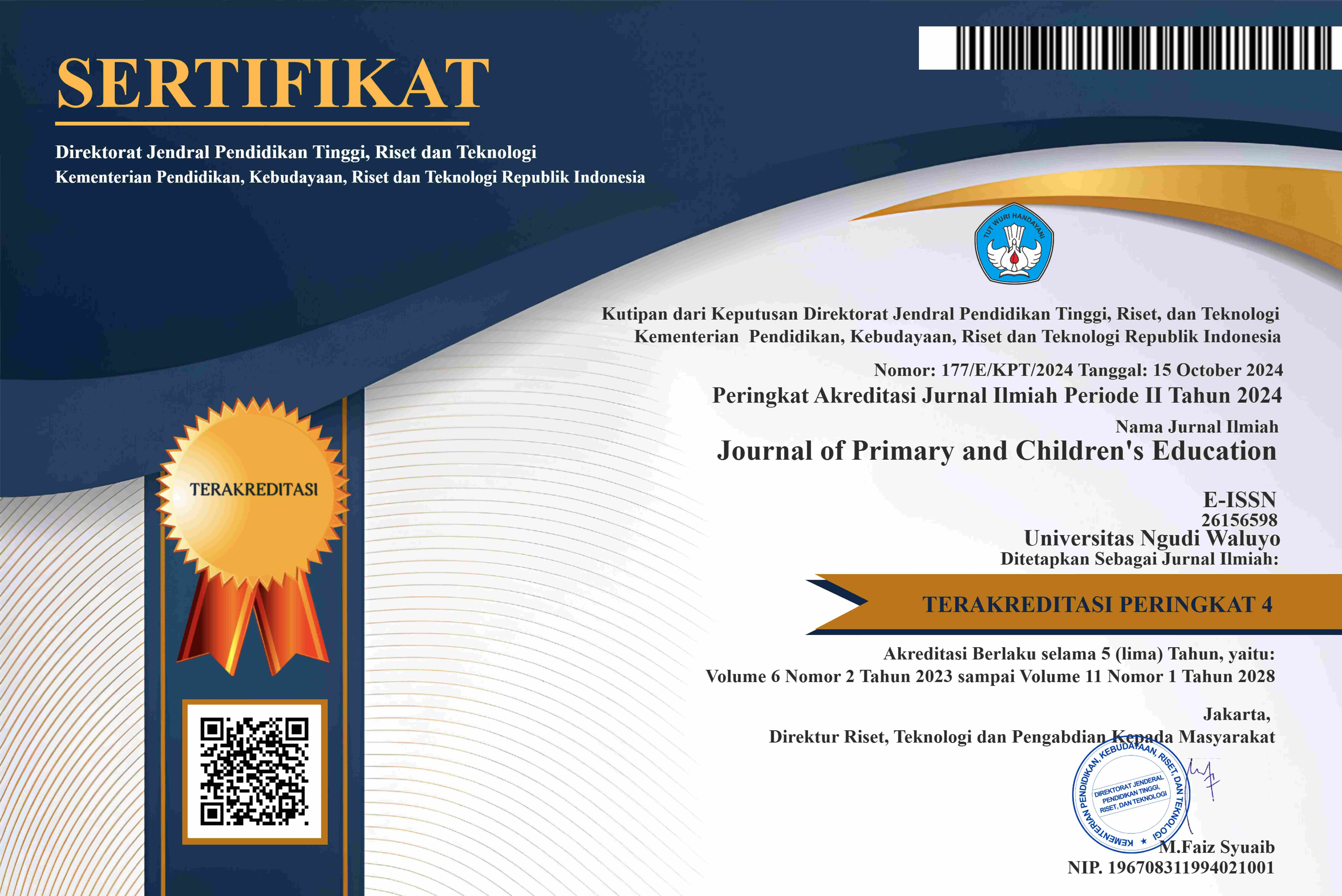INCREASING LEARNING OUTCOMES OF WATER CYCLE MATERIALS USING THE TEAM GAMES TOURNAMENT MODEL IN CLASS V ELEMENTARY SCHOOL STUDENTS
DOI:
https://doi.org/10.35473/jnctt.v5i2.1875Abstract
This study aims to determine the improvement of student learning outcomes through the team games tournament (tgt) model in fifth grade students of SD Negeri 01 Werdi. The type of research is Classroom Action Research (CAR). The subjects in the study were the fifth grade students of SD Negeri 01 Werdi Wonokerto Pekalongan totaling 19 students. The instruments used were interview guidelines, observation sheets, and written tests. The research was conducted in 4 stages, namely planning, implementation, observation/data collection, reflection. Data collection techniques using tests, observations and documentation. Based on the results of the daily test in the initial or pre-cycle activities, data were obtained from 19 students, 5 students with a percentage of 26.32% completed in learning, while 14 students with a percentage of 73.68% had not completed learning. After carrying out learning with the TGT model in the first cycle, the results obtained were 12 students with a percentage of 63.12% students were able to complete in learning and the remaining 7 students had not completed with a percentage of 36.88%. In the second cycle, it was found that 18 students were able to complete with a percentage of 94.73% and the remaining 1 student with a percentage of 5.26% had not completed. Based on the test data, it showed a significant increase in student learning outcomes. The results of this study prove that the use of the TGT learning model is effectively used in improving student learning outcomes.
Published
How to Cite
Issue
Section
License
Copyright notice:
- Authors retain copyright and grant the journal right of first publication with the work simultaneously licensed under Creative Commons Attribution License that allows others to share the work with an acknowledgement of the work's authorship and initial publication in this journal.
- Authors are able to enter into separate, additional contractual arrangements for the non-exclusive distribution of the journal's published version of the work (e.g., post it to an institutional repository or publish it in a book), with an acknowledgement of its initial publication in this journal.
- Authors are permitted and encouraged to post their work online (e.g., in institutional repositories or on their website) prior to and during the submission process, as it can lead to productive exchanges, as well as earlier and greater citation of published work (The Effect of Open Access)







